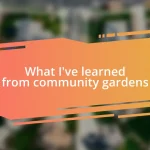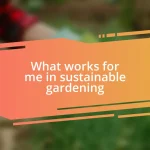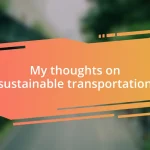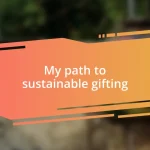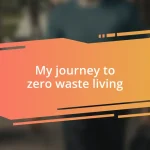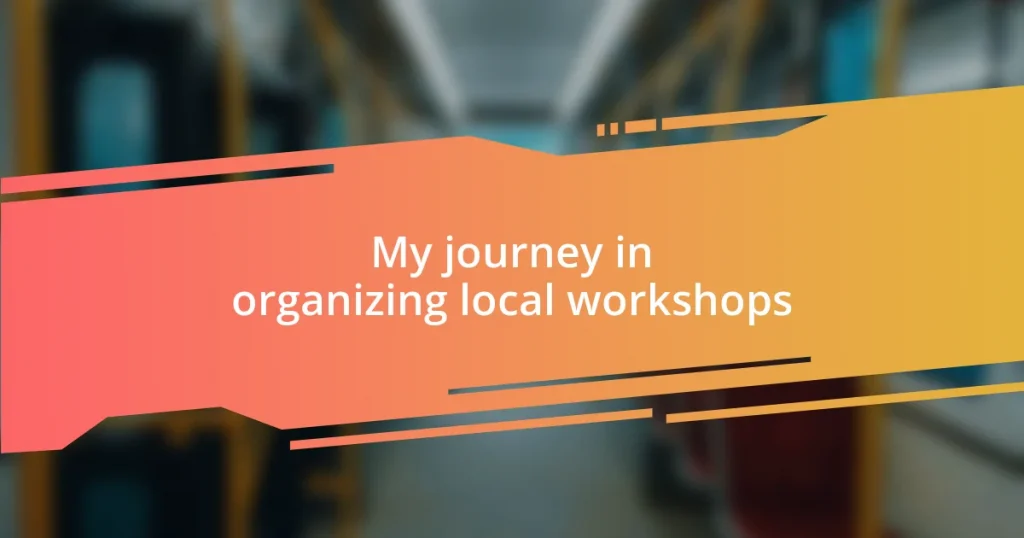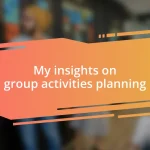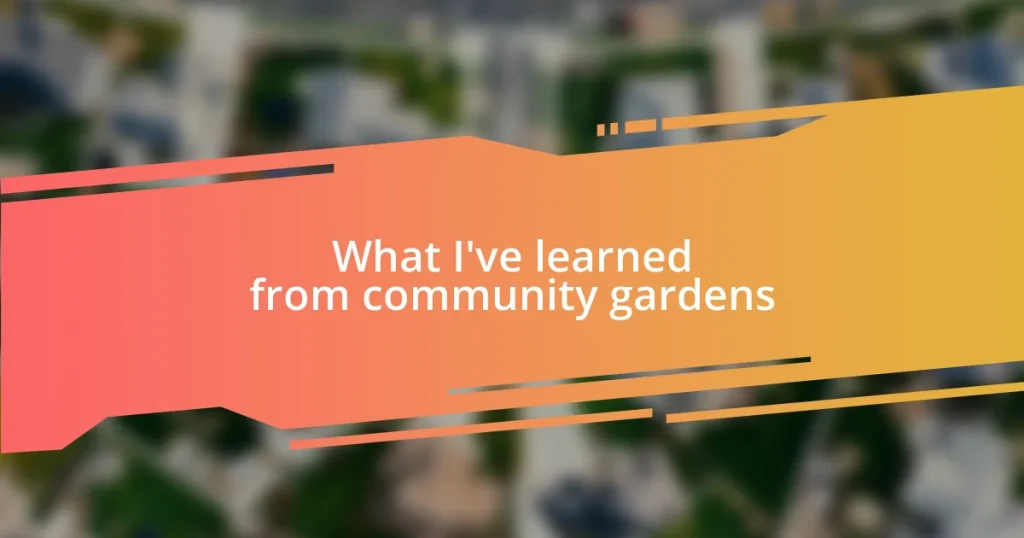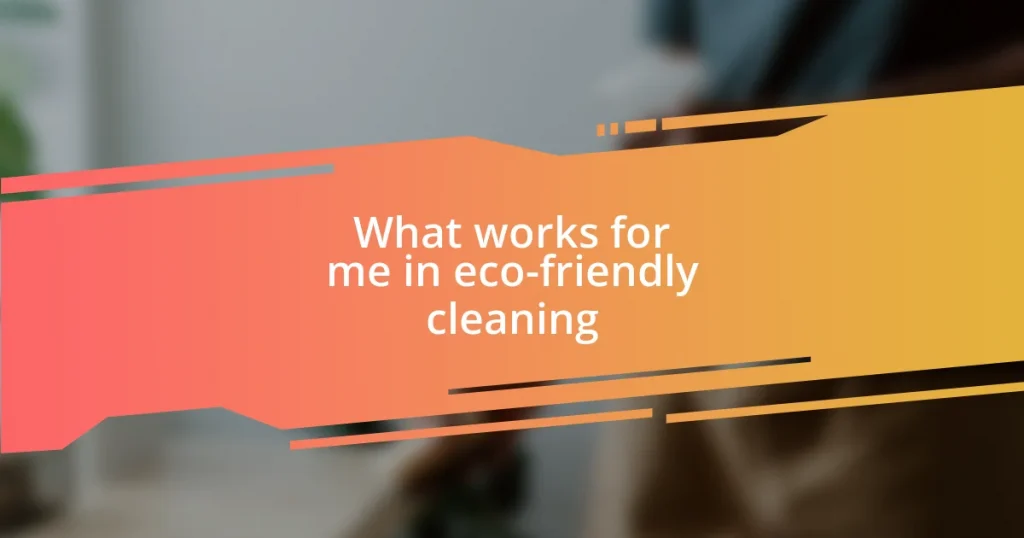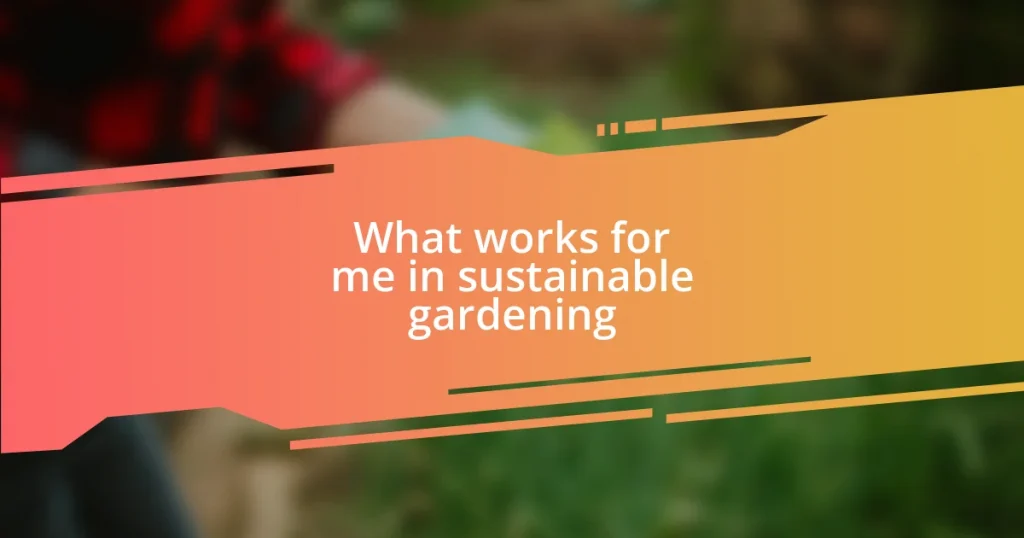Key takeaways:
- Early experiences with workshops ignited a passion for creating spaces of connection and personal growth.
- Identifying community needs through surveys and collaboration is essential for planning relevant and impactful workshops.
- Gathering feedback post-workshop is crucial for continuous improvement and fostering a sense of community among participants.
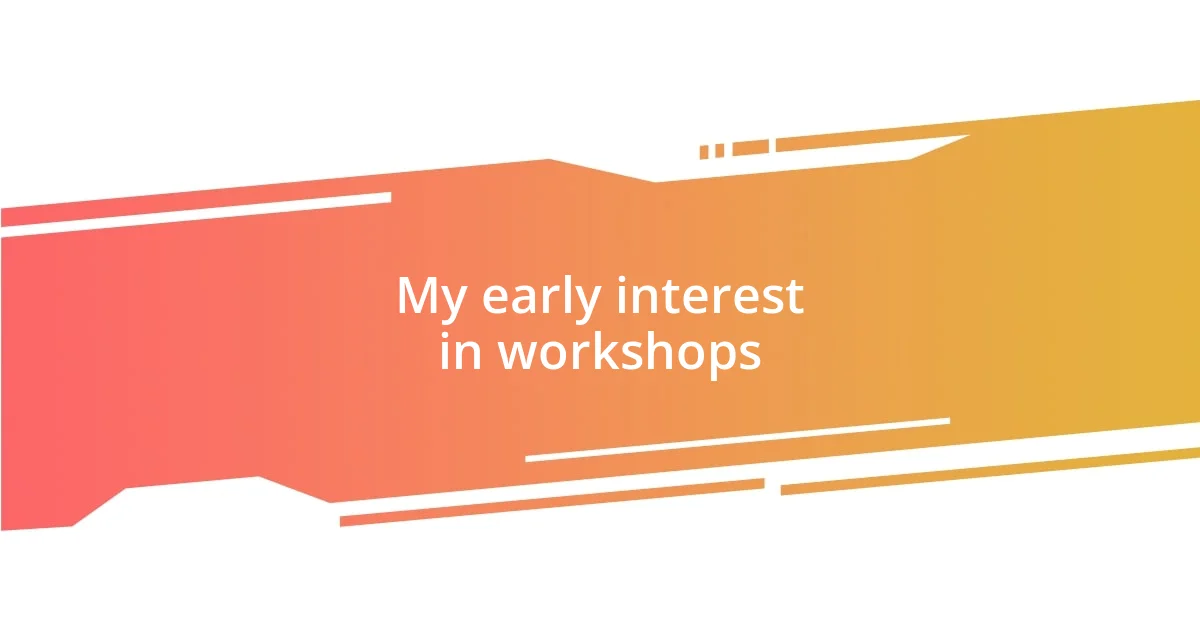
My early interest in workshops
From a young age, I found myself captivated by the idea of bringing people together to learn and share experiences. I vividly remember attending a community art workshop as a teenager; the vibrant energy and creativity buzzing in that room left a lasting impression on me. It made me wonder—what if I could facilitate environments like that for others?
Reflecting back, I recall how just one workshop sparked a passion in me. I was a shy participant at first, feeling out of place among seasoned artists. But slowly, as we all engaged and shared, I felt this profound sense of belonging. Have you ever experienced that moment when you realize you’re part of something bigger? That was my turning point, right there.
As I delved deeper into the world of workshops, I began to see them as more than mere gatherings; they were opportunities for connection and personal growth. I still remember that first time I helped organize a small meet-up for fellow creatives. The nerves, the excitement—all mingled into a cocktail of emotions. Could I really create a space where others felt that same spark of inspiration? That question fueled my journey into organizing workshops, paving the way for countless experiences that I cherish today.
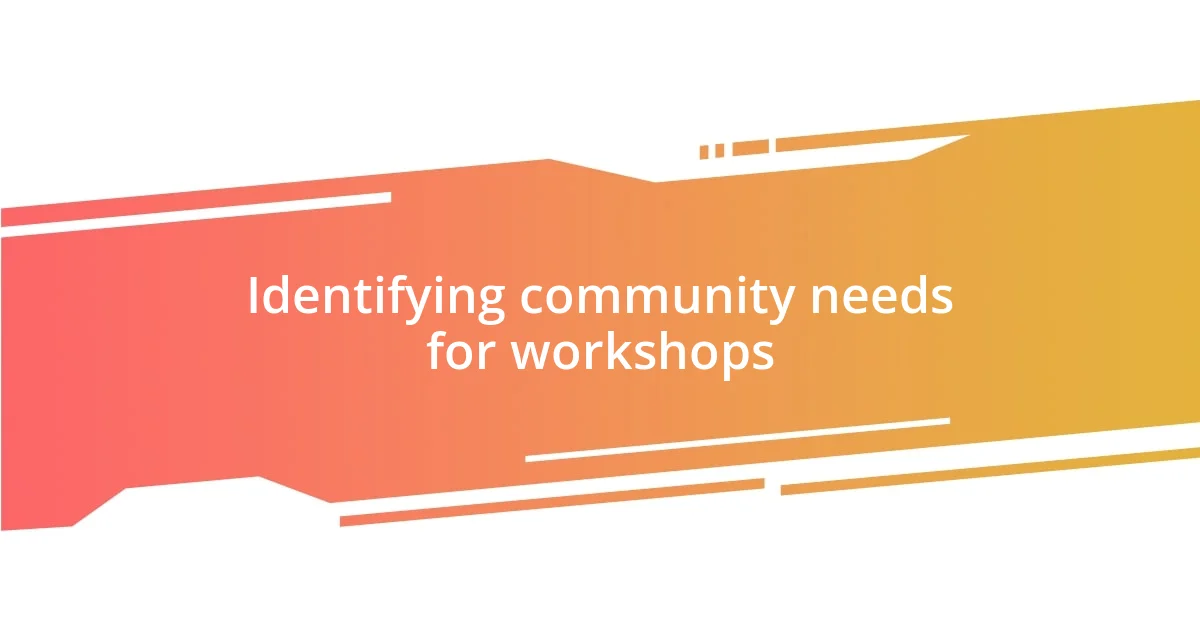
Identifying community needs for workshops
Identifying the needs of your community is a crucial first step in planning impactful workshops. I remember walking through my neighborhood one afternoon, listening to diverse conversations. I began to grasp what the community truly valued and the gaps that existed. It was eye-opening. I realized that understanding these needs could shape the content and format of the workshops I wanted to offer.
To pinpoint community needs effectively, consider these approaches:
- Conduct Surveys: Simple questionnaires can provide direct insights into what topics people are interested in or what struggles they face.
- Host Informal Meetups: Gather small groups for casual discussions; these can yield valuable information about local interests and concerns.
- Collaborate with Local Organizations: Partnering with schools, nonprofits, or community centers can help gather input and reach a broader audience.
- Utilize Social Media: Platforms like Facebook or Instagram can be great tools for polling your audience and gaining awareness of trending community interests.
- Observe Existing Programs: Attend local events and workshops to see what resonates well and what might be lacking.
These strategies not only help you identify community needs but also strengthen your connection with its members, fostering an environment of collaboration and trust.
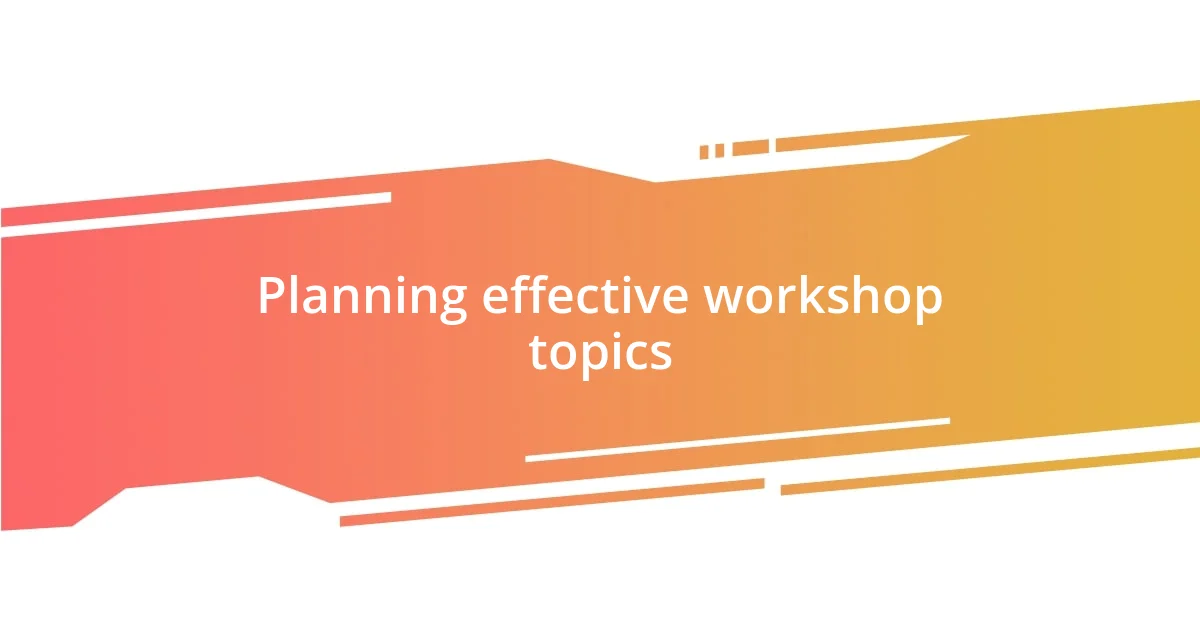
Planning effective workshop topics
Planning effective workshop topics starts with understanding your audience’s interests. I remember my first workshop planning session, where I was overwhelmed by potential topics. After reaching out to participants, I learned that many were eager to explore sustainable living practices—something I hadn’t even considered. This deviation from my initial plan taught me the importance of flexibility and being attuned to what others want to learn.
Engaging topics often emerge from personal experiences that resonate with others. For instance, after taking a course on mindfulness, I was moved to share my journey of integrating these practices into daily life. By sharing relatable stories, I fostered an environment where attendees felt comfortable exploring their own mindfulness practices. It’s fascinating how a simple personal anecdote can ignite dreams of self-improvement in others.
Lastly, I discovered that creating a balance between trending topics and timeless interests is key. For example, while technology workshops are appealing, blending them with age-old skills like gardening can draw in diverse participants. This approach not only attracts a wider audience but also encourages meaningful dialogues between generations.
| Workshop Topic | Appeal Factor |
|---|---|
| Mindfulness Practices | Timely personal development |
| Sustainable Living | Environmental awareness |
| Technology in Daily Life | Current relevance |
| Gardening Basics | Evergreen interest across ages |
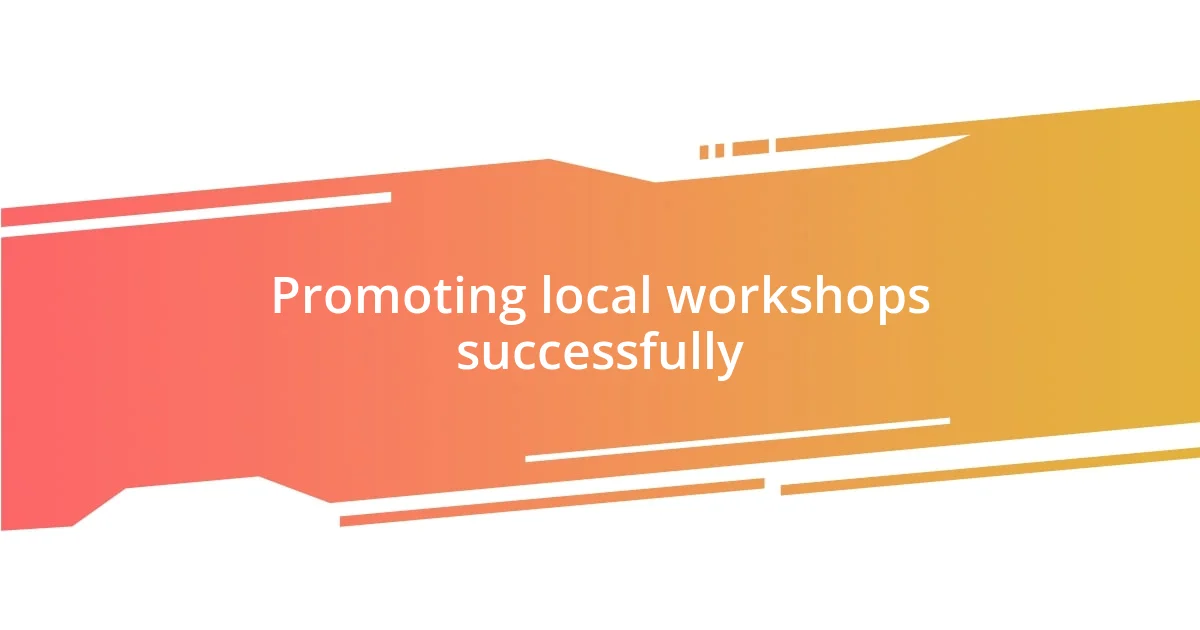
Promoting local workshops successfully
Promotion of local workshops is as vital as the planning phase itself. I recall the first time I faced a promotional challenge for a workshop on creative writing. I had this brilliant idea, but I soon realized that without effective promotion, my message was falling flat. I turned to local community boards and local Facebook groups, which became my lifelines. I found engaging with local influencers helped expand my reach tremendously. Have you ever wondered how a personal connection can amplify your presence? It truly can.
Another strategy that worked wonders for me was creating eye-catching promotional materials. I experimented with colorful flyers decorated with handwritten fonts that exuded warmth and approachability. When I hung them in cafés and libraries, I could see people’s eyes light up. One time, a barista even asked me about the workshop after seeing the flyer. That little interaction reminded me how crucial visual appeal can be in sparking curiosity. It’s all about creating that “I need to be part of this” feeling.
Lastly, I’ve found that leveraging local partnerships can elevate your promotional efforts. I teamed up with a nearby bookstore, which allowed me to use their space for a meetup, offering a sneak peek of my workshop. Not only did this collaboration furnish me with an audience right off the bat, but it also cultivated a supportive community vibe. I often think, how much more can we achieve when we come together? It’s these partnerships that often turn a workshop from an isolated event into a community celebration.
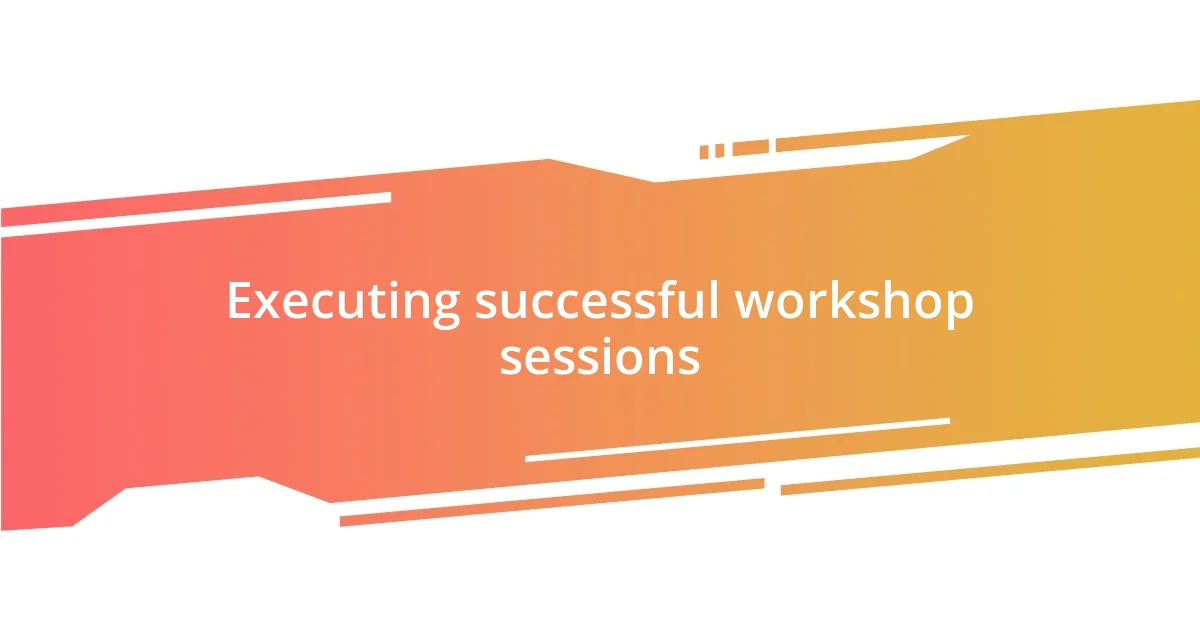
Executing successful workshop sessions
Executing successful workshop sessions relies on a few key elements that make the entire experience worthwhile. I’ve found that effective time management is crucial. One memorable session, I misjudged the time needed for a hands-on activity, and we ended up rushing through valuable discussions at the end. It made me realize how essential it is to create a detailed agenda and stick to it, while still allowing some flexibility to dive deeper into participant questions. Have you ever felt the clock ticking in the middle of a great discussion? It’s a reminder that pacing is everything.
Creating an inviting atmosphere can transform a simple gathering into something special. I fondly recall a workshop where I decided to arrange the seating in a circular formation rather than the usual rows. This small change fostered a sense of equality among participants, encouraging everyone to share their thoughts freely. The energy in the room shifted instantly. It made me think, how often do we overlook the power of our physical environment in shaping interactions?
Engagement during the session lays the groundwork for success. In one of my first workshops, I felt nervous and tried to maintain a rigid structure. However, I soon learned the value of integrating interactive components, like small group discussions and real-time feedback sessions. I vividly remember an exercise where we had to brainstorm ideas on sticky notes—a simple yet effective strategy that sparked creativity and laughter. Don’t you find it eye-opening how a hands-on approach can turn passive listeners into enthusiastic contributors? It’s the kind of dynamic that can ignite collaboration and inspiration among participants.
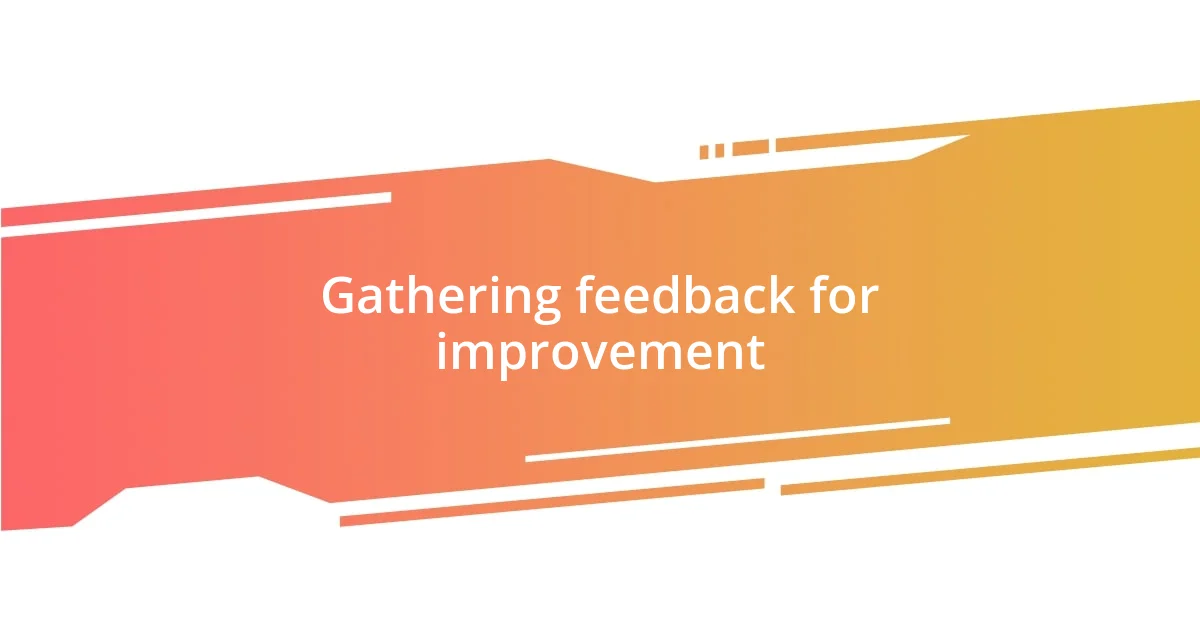
Gathering feedback for improvement
Gathering feedback is a vital step towards refining my workshops. After each session, I make it a point to ask participants for their thoughts—what they loved, what could be better, and any ideas they might have. I remember one occasion where a participant suggested a breakout session focused on personal storytelling, which turned into a favorite part of future workshops. Isn’t it fascinating how a simple question can lead to significant improvements?
I find anonymous feedback forms particularly useful, as they allow for honesty in responses. There was a time when I was shocked to discover that some attendees felt lost during a complex section of my workshop. While it stung to hear, I genuinely appreciated the feedback because it highlighted an area needing clarification. Have you ever felt that a piece of criticism was exactly what you needed, even if it was hard to digest at first? Those moments are invaluable, serving as catalysts for growth.
Additionally, I love to follow up with participants after the workshop through emails. Once, I sent a quick note to gauge how they applied what they learned and ask for further thoughts. To my delight, many replied with stories of how they implemented these ideas, enriching my understanding of their needs and experiences. This two-way communication not only fosters a sense of community but also helps to deepen my commitment to tailoring future workshops to better serve everyone involved.
